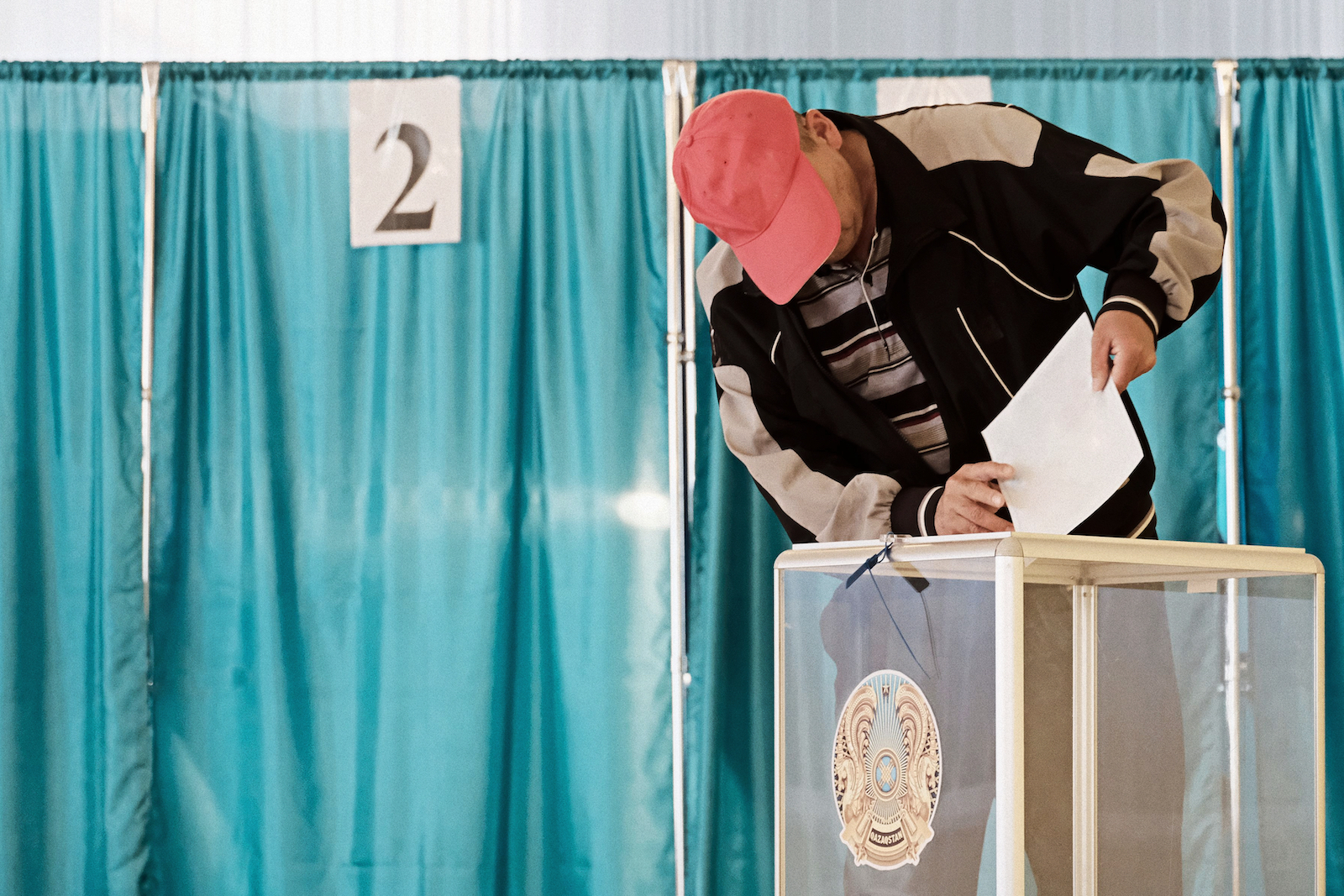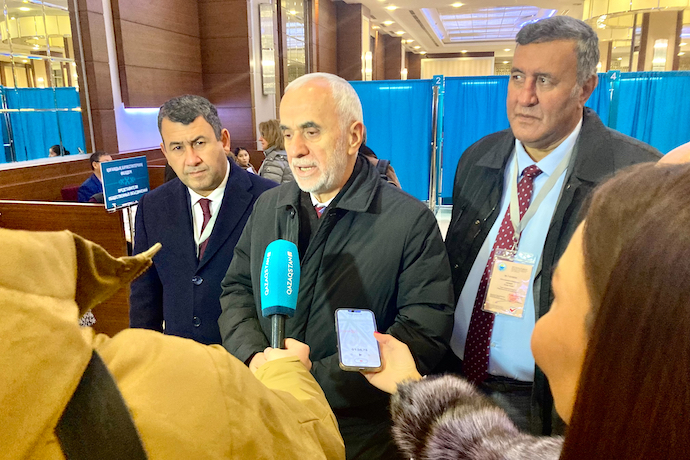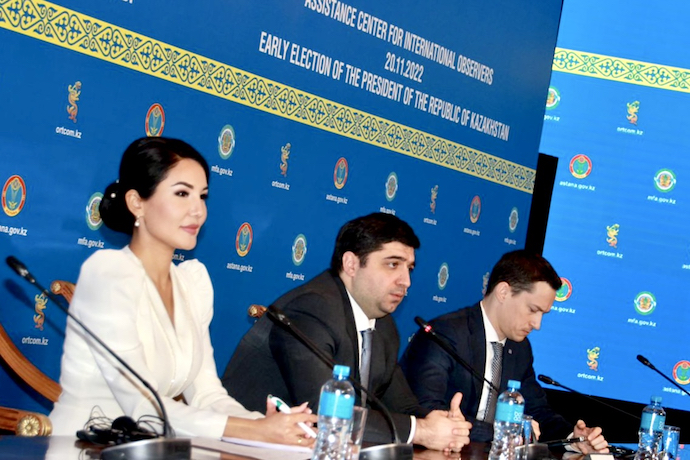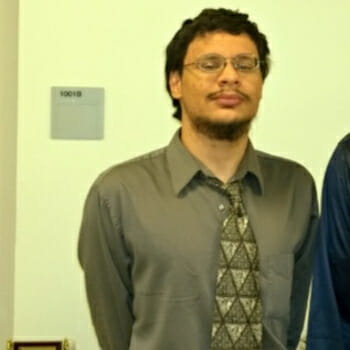
Kazakh Voters Head to the Polls
ASTANA, Kazakhstan – Türksoy, the International Organization of Turkic Culture, was present at a polling station serving 2,754 potential voters in downtown Astana. Representatives from Azerbaijan, Turkmenistan, Uzbekistan, Kyrgyzstan, and Tajikistan were there to observe the voting process. Members of the international press corps, including myself, were also on hand, to informally witness voting and ask questions of the observers. Kudos should be given to the English translators made available for helping to facilitate these discussions. Observers from Europe, Asia, the Middle East, the Americas, and Africa were also given similar access to polling stations across the country.

A steady stream of urbanites made their way through the gigantic building to mark their ballots behind curtains, before dropping them in the ballot boxes. Officials and observers made themselves available to answer questions fielded by the international attendees. In my personal opinion, the ballot-casting process was quite normal, by international standards. Voters had a quick and easy process to cast their ballot and thus give their democratic input in the 31-year-old nation.
I, along with other members of the international press, witnessed voting at a polling station in the Astana suburb of Akmol, a pastoral town of about 12,000. A slow stream of predominantly elderly voters came to vote in the community center. Guests and voters were entertained by a young singer doing John Legend and Andrea Bocelli covers.
Musician serenading voters in Akmol, Kazakhstan for the presidential election. pic.twitter.com/1TrGM6U7mM
— Russell A Whitehouse (@russawhitehouse) November 21, 2022
By the afternoon, around a quarter of the hamlet’s eligible voters had voted. This is impressive, keeping in mind the context that the station had only been open for a few hours at the time, that the polling wouldn’t end until the evening, and the fact that people tend to want to sleep in during the weekend. In retrospect, this voter enthusiasm has been confirmed at a national level, with early figures indicating that about three-quarters of potential voters had participated.

At the Astana Marriott where election observers had gathered, international observers gave briefings on what they observed.
Domenico Palmieri, Secretary General of the Italian Institute for Asia, praised Kassym-Jomart Tokayev, the country’s president, for ceding some of his presidential power to the legislature, in contrast to “Erdogan and Putin.” This would include the new law that states that presidents can only serve a single term of seven years. This is in stark contrast to the presidency of Nursultan Nazarbayev, which lasted a whopping 28 years and spanned the entirety of the existence of Kazakhstan, prior to Tokayev’s ascension in 2019.
Canadian Senators Victor Oh and Jean-Guy Dagenais commended the Kazakh voting process as being as smooth as that in their home country.
Timur Kozyrev of the International Turkic Academy likewise commented that the process went off without a hitch. A couple of observers noted the accommodations made for voters with disabilities. Both of the polling stations I visited were wheelchair accessible. This was particularly helpful for the Akmol station, which serves a disproportionately elderly voter base. People with audio and visual impairments were given resources to help them out, namely, sign language translation and braille ballots.
The ballot process is literally transparent: see-through ballot boxes secured shut with tamperproof zip ties. Observers from local and international organizations were on sight at polling stations to keep an eye on the ballot boxes and to watch for irregularities. The international observers all cited the ability to freely inspect the stations and question the poll station workers. The only people who were seen being turned away were those voters who accidentally showed up at the wrong polling station. They were subsequently directed to their proper station.
Such adherence to international voting norms is a welcome sign in a region that has been beset by authoritarianism and outright autocracy since the collapse of the Soviet Union and the subsequent power vacuum that this created. The constitutional reforms enacted this month in Kazakhstan appear to be setting an example for other Central Asian states.

